
health affect solidarity?
Events
What happens if recorded health data suddenly shows that a person will be seriously ill in the future if they don’t make changes to their lifestyle? Are we then still prepared to fund health insurance costs based on the current system of solidarity?

In cooperation with GDI, the Sanitas Foundation has published a comprehensive study on datafication and solidarity. The study results were presented on Thursday, 25 November 2021 at the hybrid event with panel discussion: “Medicine of the future: Is datafication eroding solidarity-based healthcare?”.
Jakub Samochowiec, senior researcher at the Gottlieb Duttweiler Institute (GDI), used his study “Are smartwatches eroding solidarity? Scenarios for a data-driven healthcare system” to explain how datafication of our health and the associated possibility of control – both intrinsically and extrinsically – can undermine solidarity among the population. He used the COVID-19 pandemic, which has had the world in its grasp for almost two years, as an example. For instance, if people could use technology to determine that they would never catch COVID-19, why should they be vaccinated against it?
Samochowiec also outlined four extreme scenarios to show in which direction the healthcare system could develop and how the principle of solidarity could be affected:
- Big Government: People who live unhealthily are forced to adopt a healthy lifestyle, while people who live healthily are rewarded, for example by being given a discount on their food shopping.
- Big Business: Companies set up peer-to-peer insurance solutions that group people with similar risk profiles together. Anyone who lives unhealthily is excluded from the solidarity of the insurance pool.
- Big Self: Datafication of health data empowers individuals and gives them control. The government promotes healthy living and encourages people who live unhealthily to rethink their lifestyle.
- Big Community: Communities or networks encourage individuals to live healthily. People who live unhealthily remain in the community as they enrich the data model. In this case, the diversity of data is seen as a strength.
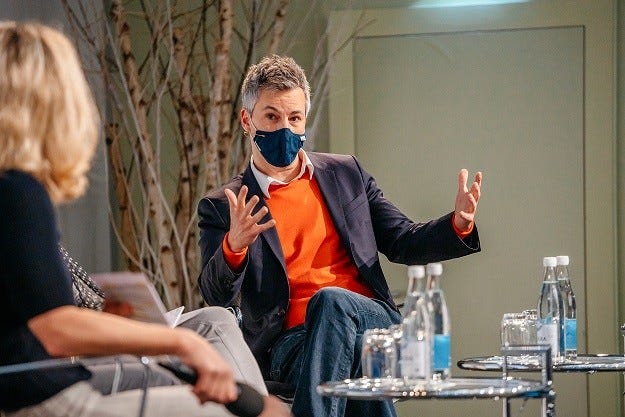
In which direction is Switzerland headed? It is clear that the government has grown in significance during the pandemic. This is confirmed by Marcel Salathé, assistant professor and head of the Lab of Digital Epidemiology at ETH Lausanne, during the subsequent panel discussion: “There are different types of solidarity, including voluntary and statutory. The pandemic has shown that we cannot rely solely on voluntary solidarity.”
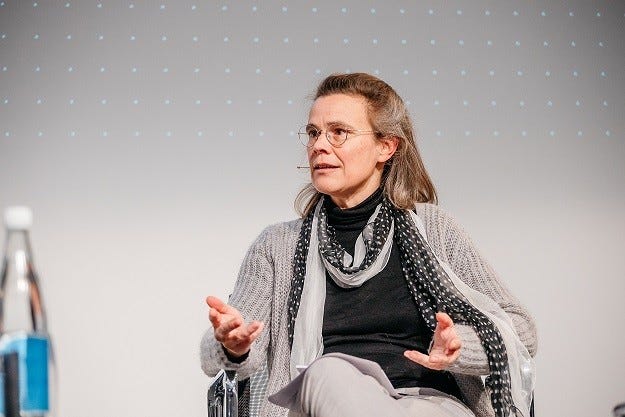
Nikola Biller-Andorno, head of the Institute of Biomedical Ethics and History of Medicine at the University of Zurich, added: “During short-term events, such as a pandemic, we as a society need more regulation by the government. However, for long-term solidarity we need to promote knowledge about health.” Felix Gutzwiller, Chairman of the Sanitas Foundation Board, assumes that there’s no getting around regulatory state intervention. “In future, many countries will tend more towards the Big Government model, although Switzerland may see a watered-down version due to its many citizen initiatives. Personal responsibility will remain important, but government regulation will increase.” However, Gutzwiller is also sure that “new solidarity networks will emerge in the future. So I’m not just pessimistic.”
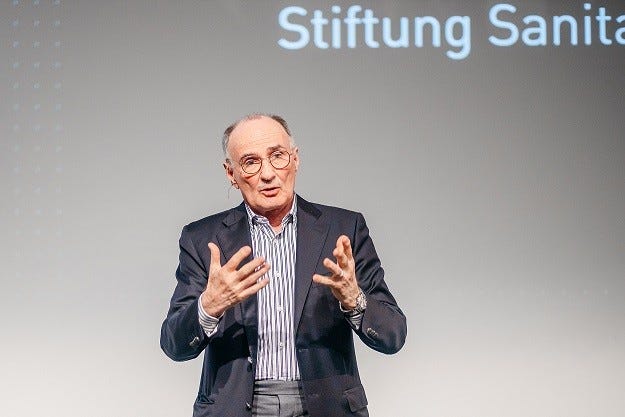
But how can solidarity in the healthcare system be encouraged? Is it actually possible? And what role will health insurers play? “Social basic insurance in Switzerland is state-organised solidarity, with personal attitudes to solidarity taking a back seat – and that’s a good thing. Our hands are pretty much tied under basic insurance when it comes to creating incentives for people to live healthily. For example, a healthy lifestyle cannot be rewarded with discounts,” says Gutzwiller.
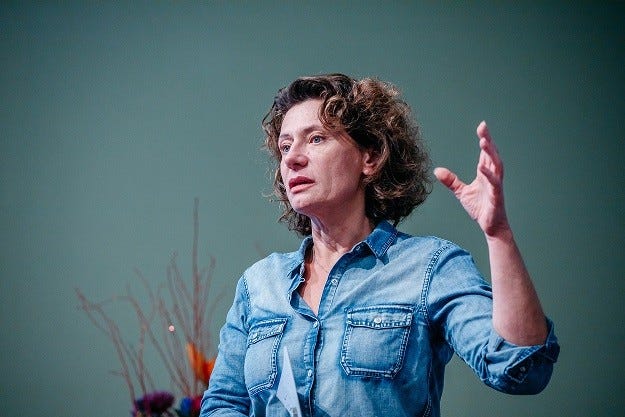
Andréa Belliger, professor, theologian and entrepreneur, gave a presentation entitled “Data protection is for healthy people! New ways of handling health data” in which she highlighted ways that solidarity can work without government intervention. She is confident: “There will be no getting around the use of data in the medicine of the future. But: wholesale datafication of our society will lead to the end of solidarity or will put solidarity as we know it under huge pressure.” She is therefore in favour of digital transformation. As a process of social change, this will create a new basis for solidarity, with the population as the driver of this solution.
“We’re moving away from individual systems towards networks. These set the conditions for change to take place.” She gives the Blue Button movement and the Open Notes organisation as examples. These initiatives give patients access to their own health data and their doctors’ notes so they can decide on the next steps of their treatment themselves. Studies have shown that this strengthens doctor-patient relationships and increases the trust in the doctor providing treatment. “Blue Button and Open Notes pave the way for participatory medicine. Patients are transformed from passive recipients to active communication partners,” says Belliger.
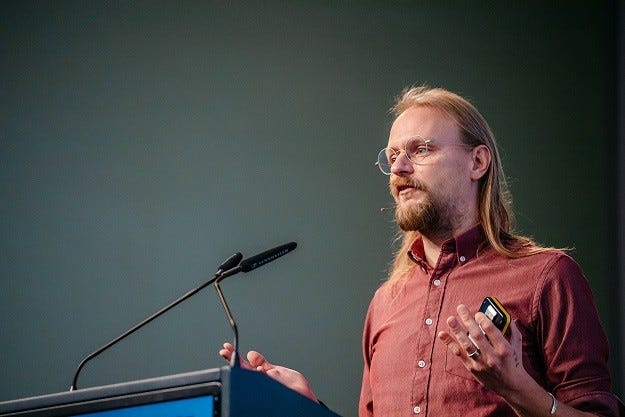
Bastian Greshake Tzovaras, fellow researcher at CRI, used his study “Data-driven & networked: when patients conduct research together” to show what can happen when patients come together to form networks. Tzovaras described the coming together of patients and collaborative tracking of data as self-defence, because scientific research devotes too little attention to some illnesses. One of the examples that he gave was the treatment of cluster headaches, also known colloquially as suicide headaches. “On average, it takes five years for patients to be diagnosed with cluster headaches.”
And that is of little comfort to people who suffer from these attacks, which are said to be more painful than kidney stones. “People suffering from these headaches around the world have got together to collect data and track the attacks.” Datafication has enabled the patients to discover that oxygen therapy helps ease cluster headaches. Treatment with magic mushrooms also helps. The results of the second theory were so convincing that researchers in the USA have now included treatment with magic mushrooms in clinical studies. Bastian Greshake Tzovaras is certain: “When patients and academics join forces and research together, both sides benefit. In the future, scientific researchers have to take patients who conduct their own research more seriously.”
Photos: Piotr Piwowarski
GDI study
1 / 3
1 / 3